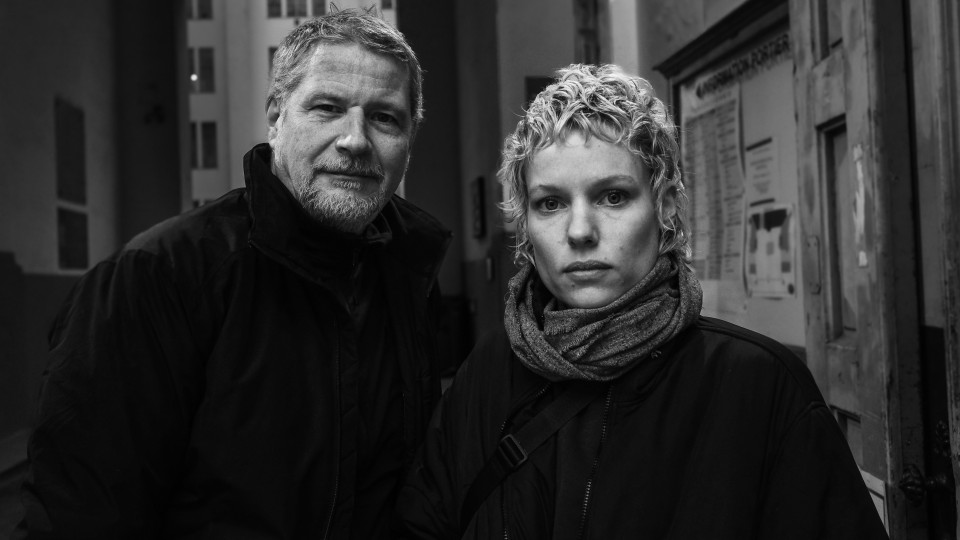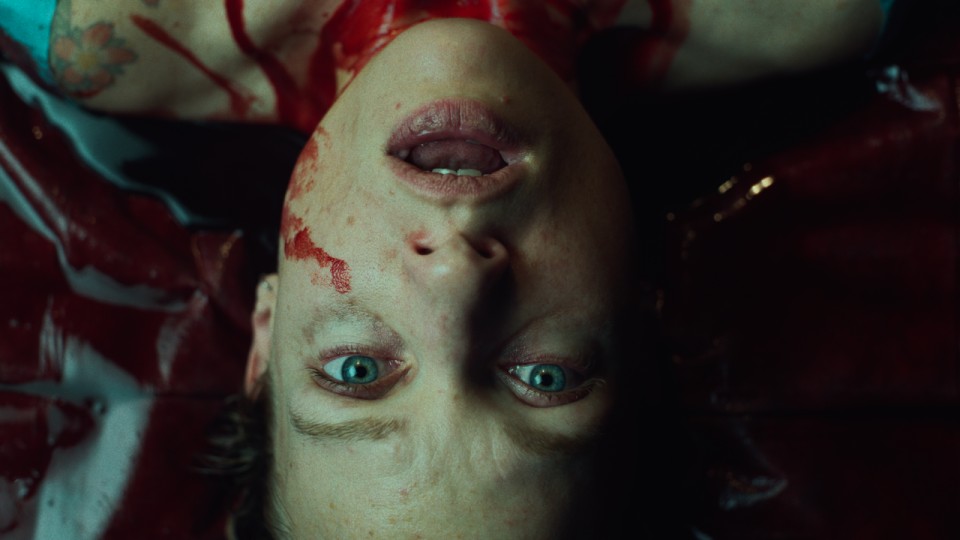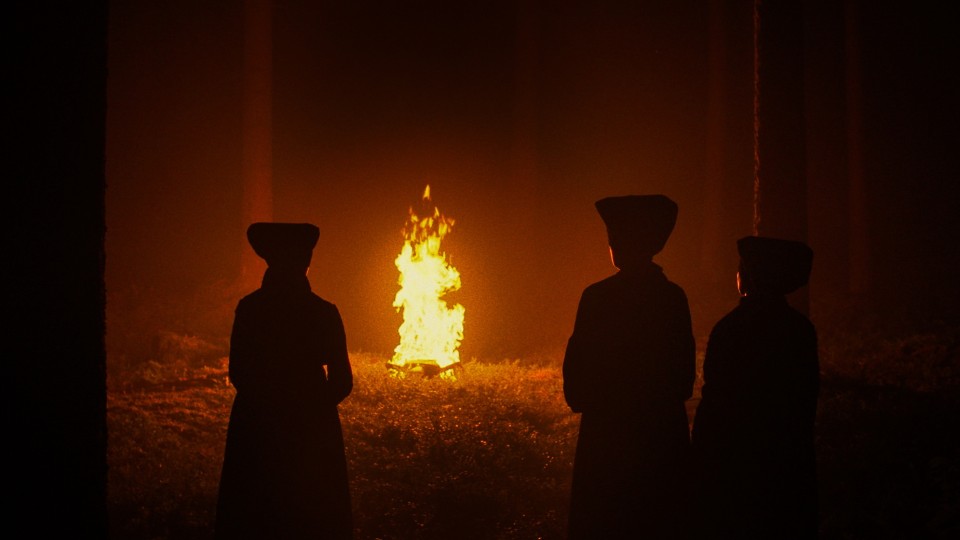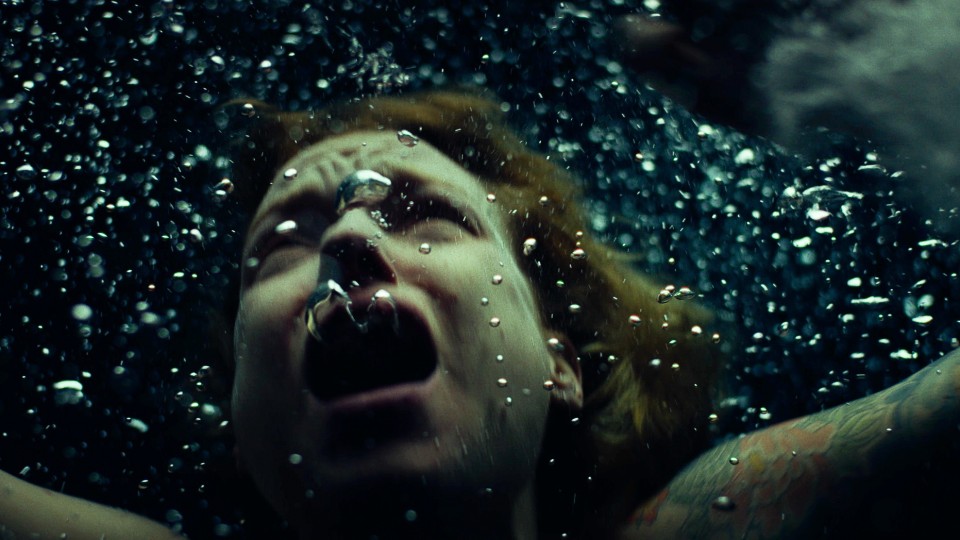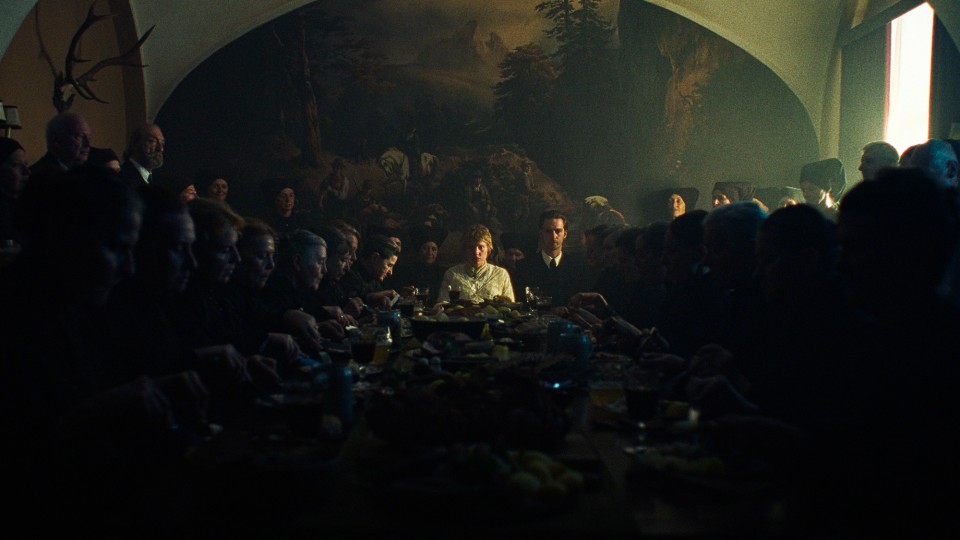Judith didn't grow up with her parents – and she could never really work out why. She has a good life in Berlin, so when she
inherits her late father's house in Austria, she just wants to dispose of the property as quickly as possible. But the moment
she steps inside the impressive building, she begins to be sucked down into buried memories, and before long she’s cornered
by an entire village. With this gripping plunge into deep-seated fears, Andreas Prochaska's psychological thriller WELCOME HOME BABY depicts the clash of old and new orders and a blow that brings liberation.
The screenplay of WELCOME HOME BABY is credited to three writers but based on an idea of yours. Was the dominant theme always
intended to be the conflict between generations, between old and new orders?
ANDREAS PROCHASKA: After my feature film The Dark Valley, which was released in 2014, I spent a long time thinking about the material I wanted for my return to the cinema screen.
The story of a school friend who didn't know his father but one day inherited a house from him – and discovered some pretty
bizarre things about him in the process – has been lodged in my internal hard drive for decades. I’ve always been fascinated
by questions like: What effect does it have on you if you have no idea where you come from? How much of our family is inside us? How much control
do we really have over our lives? How much is passed on subconsciously from one generation to the next? And can you free yourself
from that? During Covid I sketched out a first draft of the screenplay. By myself at first, until I met Constantin Lieb and Daniela Baumgärtl
while working on a different project. I invited them to write with me, and they provided the decisive impulses.
WELCOME HOME BABY is about inner unease, internal demons that have to be overcome. Is the main character's inner horror rooted
in the fundamental natural events of death and birth?
ANDREAS PROCHASKA: Thomas Willmann, who wrote the novel The Dark Valley, has described WELCOME HOME BABY very aptly as "body horror of the soul", although we tend to avoid the term "horror" in the
context of the film. It’s more of a psychological thriller. The longer we worked on the screenplay, the more layers opened
up. It was important to leave things open all the time, sticking with Judith's perspective as she tries to comprehend what’s
happening to her. She confronts the forces acting upon her, ultimately so she can discover her own power.
What are the essential elements and characteristics inherent in the character of Judith? What was the incentive to play this
role?
JULIA FRANZ RICHTER: I see Judith as a character who is very much in charge of her own life. She has quite a controlled existence, with a stable
job, a stable relationship. When she inherits a house in Austria and is thrust into this confrontation with the past, she
increasingly loses control over who she has always thought she was, over her powers of perception, and ultimately over her
body as well. The film isn’t heavy on dialogue, and there’s no clear narrative framing the psychological character development.
Judith's life is clearly outlined at the beginning. Being immersed in the trauma of her childhood and forced to face the past
brings mounting uncertainty to her self-image, her protective mechanisms and her way of dealing with other people. I think
it’s fascinating to see this inverted character arc, so to speak.
How did Julia Franz Richter become the ideal candidate for the role of Judith?
ANDREAS PROCHASKA: My search for the right Judith entailed auditioning a lot of actresses in Berlin and Vienna. After all, you have to establish
whether there is a symbiosis between the actress and the character. Once we had settled who would play Julia, the next task
was to find a credible partner. And we managed to do that in the shape of Reinout Scholten van Aschat. The two of them complement
each other perfectly. During the course of the story, his character undergoes a metamorphosis that raises the question of
whether you can really trust your life partner.
Is the challenge facing an actress in a genre film different from acting in a drama?
JULIA FRANZ RICHTER: Every role requires me to get inside the character thoroughly and embody that figure, so as to make her believable. A lot
of the developments in WELCOME HOME BABY aren’t entirely organic, which means the character is often confronted with extreme
situations out of the blue. One of the biggest challenges was being open to a kind of loss of control that you can’t entirely
prepare for, because it only arises at that particular moment.
ANDREAS PROCHASKA: Julia is in almost every shot, and filming was physically challenging on top of everything else. It was a role that demanded
a lot of openness and dedication. It was crucial for the two of us to establish a foundation of trust. As a man telling a
story about a young woman, I felt it was important that Julia should agree with everything her character did, and that we
had a consensus about the story we wanted to tell together.
Judith, this emancipated, independent woman, arrives in the village where she spent her early childhood and comes up against
a united front of female antagonists. What was the idea behind this show of concentrated, toxic femininity, which of course
represents the old patriarchal order?
ANDREAS PROCHASKA: Every Mafia film features women doing the cooking and looking after the family, supporting the system and passing on these
duties to the next generation. This mixture of caring and brutality has always fascinated me, and it has increasingly influenced
our writing process. The environment of a village community is almost ideal. Our story isn’t about matriarchy, but I find
it interesting how much pressure is exerted by women on other women, again and again. Judith is suddenly confronted with a
community that places expectations on her which she can’t fulfil and doesn’t want to. She comes under enormous pressure, but
ultimately what matters is liberation and self-empowerment.
You worked with Carmen Treichl as DoP. Impressive underwater footage stands out, along with powerful images surrounding the
wedding – a scene where time seems to unravel. What were your concerns about camerawork?
ANDREAS PROCHASKA: It was important for me to find an artistic partner who responded emotionally to the story and the characters. In the scene
you mention, we were looking for the right imagery to make the audience feel the main character’s isolation within this crowd.
There were a lot of extras in the scene, and we could have shot it with 40 takes, but we got it in just one take. The costume
designer, Christine Ludwig, and I spent a long time thinking about how to show this different world through costume. We deliberately
went back a hundred years to bring home the point that these traditional structures have been inherent in rural society for
such a long time. Fortunately, there is now a tank in Vienna which met our technical requirements for the underwater scenes.
Planning and executing those shots was complicated, and we were very lucky that Julia could hold her breath for such a long
time. How long was it exactly?
JULIA FRANZ RICHTER: 2 minutes 22 seconds.
ANDREAS PROCHASKA: That was an absolute blessing for us. Otherwise, a lot of things simply wouldn’t have worked.
Which sequences have stuck in your memory, Julia, even with quite some distance to the shoot?
JULIA FRANZ RICHTER: Naturally, I have clear memories of the scenes that were the most physically exhausting. Those were the underwater scenes
and the scenes with blood, because the blood would always run up my nose and congeal. But there were also very emotionally
challenging scenes, where Judith had to process such a wealth of impressions that sometimes it wasn’t easy to keep up.
ANDREAS PROCHASKA: The main location allowed us to shoot pretty much chronologically, which was extremely important for the psychological development
of the character. Our initial plan was that this house in the middle of the village could just be a possible studio set. But
the moment I walked inside, it took my breath away: it was the house of the village doctor. There was a treatment room, a
waiting room, a medicine store and even a darkroom. In a bizarre way, fiction and reality overlapped, because all these rooms
were described in the script.
JULIA FRANZ RICHTER: Quite often a scene would create an atmosphere, and it only really became clear when we finished shooting that scene how restrained
or dynamic the next one should be. Being able to react so directly when a scene went differently than we had previously planned
was a great help in terms of submitting to the flow of the story.
With Dead in 3 Days, you re-established the genre film in Austrian filmmaking. It seems to be your preferred genre for narrative. Why does it
allow for so many forms of expression?
ANDREAS PROCHASKA: Dead in 3 Days and Dead in 3 Days 2 were an experiment. Does it work to transfer the genre pattern with American connotations to Austria? Fortunately, the experiment
worked. But it wouldn't have been right to employ that pattern again. In WELCOME HOME BABY, which is my most personal film
in an odd sense, I tried to use the conventions of the genre to create suspense and, if you will, "entertainment" for a wider
audience on the surface, while at the same time confronting the audience at a deeper level with questions about trauma, self-empowerment
and identity.
Julia, you saw the film on the big screen before our conversation. How did you feel about it?
JULIA FRANZ RICHTER: The impressive thing about a screening of WELCOME HOME BABY is that it moves me physically. It puts me back in the state I
was in during the shoot. Perhaps that’s one thing genre films can do particularly well: evoke a state in the audience that
can really have a cathartic element. When you come out of the cinema you still feel this tension in your body. In my opinion,
the feeling of being trapped, which the character is thrust into so powerfully, is completely transferred to the audience.
ANDREAS PROCHASKA: Cinema is an art form that can touch you on so many different levels, more than any other. It reaches into your heart, your
body, your subconscious. WELCOME HOME BABY was my attempt to tell a story making full use of the potential of cinema, and
you have to go to the cinema to experience it properly.
Interview: Karin Schiefer
January 2025
Translation: Charles Osborne

